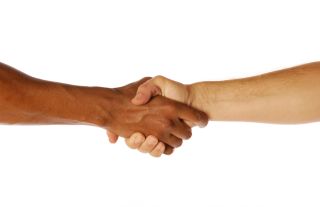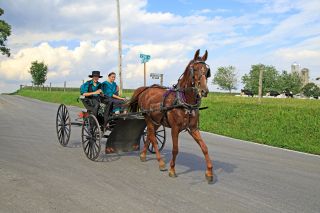Forgiveness
On Being Prepared to "Spontaneously" Forgive the Unexpected
If confronted by an unexpected unjust event, will you be able to forgive?
Posted June 25, 2024 Reviewed by Abigail Fagan
Key points
- Most people who forgive have time to reflect on the offending person and make a free-will decision to forgive.
- Yet some situations surprise us, such as unexpectedly meeting someone who offended us years ago.
- Some people who have met this unexpected challenge were able to offer forgiveness in a short time.
When we forgive someone who hurt us in the past, this often emerges after some time of reflection. We become discontented with the inner unrest that visits us every time we think about this person. We then willingly decide to forgive and walk that pathway for weeks or months and, as the science shows (Akhtar & Barlow, 2018; Enright & Fitzgibbons, 2024), emotional health can be restored.
These kinds of self-reflective forgiveness decisions are quite different from the sudden, surprising, unexpected opportunities to forgive someone who has not been on the radar. When a surprisingly new opportunity to forgive emerges, can someone forgive quickly and well or must the person wait for months before forgiveness takes hold in the heart? Here are two case studies to show rare instances in which people are confronted by an offender who suddenly emerges, and forgiveness also seems to quickly emerge. But is it really as spontaneous as it looks?
An Unexpected Meeting in 2024
I recently received a message from Leo (who has given me permission to share the story) and here is the verbatim account:

“On Tuesday in my town's main square, I met a person who hurt me very much 10 years ago. I went up to him and shook his hand with a smile on my face. We chatted for a few minutes and then I wished him a happy life. As this all was happening, I was shaking, especially my right foot! I felt really fortunate to have had this opportunity to extend forgiveness! I then went to my parents to celebrate with a glass of prosecco. We read out some quotes on forgiveness you post on FB. Thanks for the support!!!”
Prosecco... a sparkling wine for a sparkling heart. Think about this for a moment. Leo was walking around for a decade with a heart that was in need of mending. Unexpectedly, there stood the one responsible for hurting Leo’s heart 10 years ago. Surprisingly, Leo was able to spontaneously forgive, right there, on the spot, without even expecting the person to be there. It obviously was not easy as Leo was shaking. Yet, through the shaking emerged generosity and the extended hand of forgiveness... after 10 years. Such surprising spontaneity actually was not just a sudden emergence of forgiveness. Leo’s heart was being prepared by reading quotations on forgiveness, letting them settle into the heart, and then, in one sparkling moment, all of this preparation came forth with forgiveness toward the person and a closure on the hurtful event that occurred so long ago. Leo, congratulations. Your toast with the prosecco is a toast to the triumph of forgiveness in the heart.
The Amish Community in 2006

On October 2, 2006, Charles Roberts entered Lancaster, Pennsylvania's West Nickel Mines School, an Amish one-room schoolhouse. After shooting 10 girls, five of whom died, he shot himself.
The enormity of this catastrophe is beyond comprehension. The Amish society, and particularly the families who were directly impacted by the murders, were abruptly and unexpectedly faced with evil. The entire Amish community reacted in a way that stunned the world. About 30 people from the Amish community came together to support Charles's widow, attend his funeral, and even establish a benevolent fund for his kids. The overwhelming display of kindness was astounding to a world unaccustomed to such generosity. I remember that in the weeks that followed this horrible incident, I received a lot of calls from the media. Several of these calls basically said this:
“It almost seems to be the case that the Amish are making up their forgiveness. The Amish community will be boiling over with rage once the cameras stop, right?”
I was challenged by their responses, which made me start paying more attention to Amish culture. I discovered this. Daily family prayers are encouraged by the Amish faith, and a portion of these prayers center on forgiving others. People, families, and the community were already in a forgiving frame of mind when the tragedy occurred, but few people outside of that group were paying close enough attention to see this. Forgiveness was a daily practice in this community, and it was far more effective than most people could have imagined.
Preparing for “Spontaneous Forgiveness”
As we can see from the two case studies above, neither one was “spontaneous” because, behind the scenes, in both cases, the people were preparing for forgiveness by reading quotations or praying together daily with a theme of forgiveness as part of the daily routine. I am surmising that the Amish people did not ever imagine the kind of grave injustice that would befall their community, but their consistent preparation assisted them in their forgiving. I think this is why they could respond so quickly and so well. I think it is the same for Leo. Surprise likely visited Leo when there stood the adversary in the town square. With the foot shaking, Leo still could extend a hand of friendship and wish the other person well. Reading forgiveness quotations long before the unexpected meeting prepared the heart.
These two cases become a wake-up call for all of us to prepare our children for an uncertain future that could include grave injustice and even tragedy. Forgiveness education (Rapp et al., 2022) is a key and this kind of education has been ignored as mathematics, geography, and other subjects take precedence in so many regions of the world. These students will not be better off if they know how to add up a grocery bill but have no clue about how to deal with an adversary from 10 years ago who suddenly appears before them. If the purpose of education is to prepare our children for the future, perhaps it is time to factor in the survival approach of learning how to forgive.
References
Akhtar, S. & Barlow, J. (2018). Forgiveness therapy for the promotion of mental well-being: A systematic review and meta-analysis. Trauma, Violence, and Abuse, 19, 107-122.
Enright, R.D. & Fitzgibbons, 2024). Forgiveness therapy. APA Books.
Rapp, H., Wang Xu, J., & Enright, R.D. (2022). A meta-analysis of forgiveness education interventions’ effects on forgiveness and anger in children and adolescents. Child Development, 93, 1249-1269.


